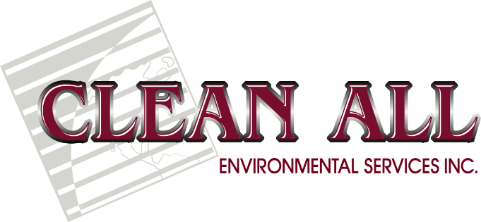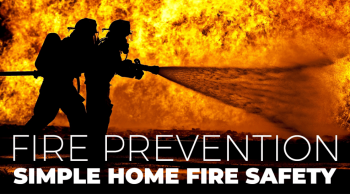Home Fire Prevention Advice for the Fall
Autumn is a lovely season. The hues on display are breathtaking. You can wear your galoshes and take brisk outdoor strolls. However, when the weather shifts and your interior heating turns on, it’s a good idea to brush up on your knowledge of the season’s fire threats and fire safety precautions.
Of course, certain safety recommendations for preventing house fires are constant regardless of the time of year, but many others are. Additionally, there are increased fire dangers in the fall. In the winter, heating is the biggest culprit. That’s accurate. According to the National Fire Protection Association, heating is the second biggest cause of house fires, fire injuries, and home fire fatalities.
Reviewing home fire protection methods and fire safety advice would be wise in that scenario. Always choose safety over regret. We’ll discuss autumn fire threats and home fire protection advice indoors and outside to keep you cozy and secure this season.
Indoor Fire Safety Tips
Winter and fall are busy seasons. A celebration is always in progress, or family is staying over. As a result, more people will gather around the fire pit and light candles, and the chefs will get distracted. Do you know what the leading cause of house fires is? We discussed the second leading cause. Unattended cooking is what the National Fire Protection Association reports. Here are some suggestions to keep in mind if you want to keep fire out of your house.
Heating
- Whether you utilize fireplaces, HVAC systems, gas heaters, or space heaters, it’s essential to ensure they are all functional.
- Regularly check, clean, and maintain your HVAC system.
- Make sure your carbon monoxide detectors are installed and operational if you prefer gas heaters.
- A minimum of three feet must be available around a space heater.
- Never use your space heater to dry clothes or other items.
- When leaving the house or going to bed, turn off heating equipment.
- Avoid keeping anything flammable close to your heaters.
Fireplace
- Before the start of each autumn season, get your chimney examined, cleaned, and swept.
- If your fireplace has developed any cracks, fix them.
- To prevent sparks and other debris from entering the fireplace, use screens.
- Keep an eye on your fire at all times.
- Before the start of the season, gas fireplaces should be maintained by examining the connections and lines.
- Never light a fire in your fireplace using gasoline.
- Avoid keeping anything flammable next to your fireplace.
The Kitchen
- Never leave food unattended on the burner or in the oven while cooking; instead, remain in the kitchen.
- Keep everything that can catch fire away from your cooktop.
- To help you remember when everything will be ready, set a timer.
- Don’t fill electrical outlets to capacity.
- Verify the functionality of your kitchen equipment, paying particular attention to any damaged wires or plugs. It’s advisable to completely remove them and get the appliance replaced to reduce the chance of a fire.
The Dryer
- Make sure your dryer is frequently maintained.
- Verify the operability of the exterior vent flap and the flexibility and visibility of the air exhaust vent pipes. A helpful hint is cleaning and examining dryer vents at least once yearly.
- Don’t use the dryer without a lint filter, and be sure to clean the lint filter both before and after each usage.
- When you leave the house, do not leave the dryer running.
Candles
- With candles burning, never leave the room or go to sleep.
- Candles should not be near windows, anything that might easily catch fire, or busy places where kids or animals might knock them over.
- Watch your kids while holding a candle. In addition to not letting young children be alone in rooms with candles, refrain from letting them light candles in their bedrooms.
- Use caution when lighting candles during a power outage as it might be dangerous to come upon risks unexpectedly in the dark.
- Keep candles from getting too close to the base and burning out altogether. Trim the wicks to a quarter inch to keep them short.
- Avoid purchasing novelty candles that include combustible art supplies, paint, and paper adhered to them.
Holiday Decorations
- Instead of candles, use low-heat string lights and ornaments.
- Verify the decorations. Do they resist fire? If not, look for those that are.
- Examine the Christmas lights for any damaged parts. Before using your extension cables for the holidays, be sure a reliable agency has checked them.
Tips for Outdoor Fire Safety
Surprisingly, there are several outdoor fire threats throughout the fall. Conducting an exterior DIY check in the autumn is a great idea to prevent house fires. Eliminating leaves will be your first step. They have a history of starting outdoor fires.
Fuel and Gas
- Before storing lawnmowers for the winter, drain the fuel from them.
- Are you considering burning your yard waste and leaf litter? Learn about the laws in your region regarding outdoor burning beforehand.
- Avoid parking your cars on top of a mound of leaves. The heat from your automobile might ignite a fire and burn the leaves.
- Don’t keep flammable substances in your home, garage, or shed. Instead, store them outside. Remove them from your property or keep them safely outside.
Cleanup
- Your roof, gutters, and downspouts should be cleaned.
- Clear any leaves, pine needles, and other trash around your house.
- Are your electrical lines surrounded by or touched by trees or branches? Make a call to your utility company to get them reduced.
- Create a fire break between your foliage and your home if your property has a large garden area full of trees and plants by pruning your plants and shrubs, trimming back trees, and sweeping leaves and trash. Set up a wall at least 20 feet away from the home.
- Boxes made of cardboard, paper, and combustible materials shouldn’t be left outside since they might catch fire.
Family Fire Safety Tips
Make sure everyone in your household knows what to do in the case of a fire. The first priority should be to teach your kids how to respond. To keep them safe if you aren’t there, make sure they can react swiftly and effectively.
- Always remind small children to call 911 first.
- Make a fire escape strategy and practice it. Your plan should include how to exit a room, how to use a fire extinguisher, where to meet outside your house, and how to halt, drop, and roll.
- Ensure that there are enough smoke detectors in your home and that they are all functional.
- Ensure any combustible materials are appropriately stored in secure containers and always out of young children’s reach.
- Know and understand the terms of your homeowner’s insurance.
How Clean All Can Help in the Repair of Fire Damage
Clean All exclusively uses the most recent tools and suggested procedures to repair fire-damaged properties. Our technicians hold the greatest qualification in our business. This, combined with our simple procedure, enables you to concentrate on your family while our team restores your home to its previous condition.
Repairing fire damage must be done right away. Your home and everyone inside it risks being injured or ill without the proper restoration services. Please contact Clean All as soon as possible if you have just had a house fire.
Get in touch with us right away, and we’ll help you start your restoration.

